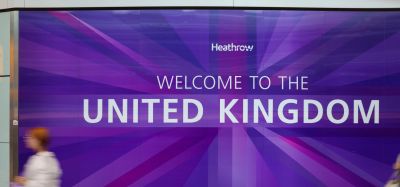A robust testing programme should replace quarantine
Posted: 27 August 2020 | Luis Felipe de Oliveira | No comments yet
Luis Felipe de Oliveira, ACI World Director General, provides his opinion on how air travel can resume without increasing the risk of infection or the fear of unnecessary quarantine.


The airport community is key in supporting jobs and economic recovery and, as airports restart and then prepare to sustain continuing operations following the devastating impact of the COVID-19 pandemic, they are focused on the health and welfare of travellers, staff and the public.
To create the best prospects for a sustainable and successful recovery, however, urgent action is needed by governments to align risk-based, practical measures to foster a coordinated recovery whilst providing reassurance to travellers.
Decisions on measures to support recovery must not be made in isolation
Collaboration, cooperation and consistency between governments and across the aviation industry will be the key to rebuilding global air services capacity and keeping passengers safe, healthy and secure.
Join us live: Shaping the Next Generation of Hold Baggage and Air Cargo Screening
Join us live for an insightful webinar on 11th December at 14:00 GMT, in collaboration with Smiths Detection, as we explore the strategic balance of operational efficiency, regulatory compliance, and sustainability in high-volume security environments.
This session offers a focused look into future-proofing your security strategy.
Key learning points
- Cost Reduction: Strategies to minimize bag travel time while simultaneously reducing operational costs.
- Regulatory Roadmap: Insights into the next wave of regulatory changes and their impact on future investment decisions.
- Sustainable Systems: Practical approaches to building sustainability into security systems and lowering the total cost of ownership (TCO).
- Scalable Solutions: Real-world examples of scalable systems supporting current airport growth and preparing for tomorrow.
Register now for expert insights, case studies, and actionable strategies on operational efficiency!
Unilateral decisions taken by governments on new and prescriptive measures are damaging to both the industry and passenger confidence and will hamper global efforts to recover.
Quarantine measures are a prime example
Unnecessary quarantine measures are particularly harmful to passenger confidence as international air travellers have no assurance that, if they make flight arrangements, they will be able to return to their place of departure to continue their daily lives.
The imposition of quarantine requirements fails to take into account other options, such as testing or any other medical evidence based on states’ response to COVID-19. The level of testing and infection must also be considered.
We have called on governments to follow a robust and consistent protocol for testing – which should be implemented only when necessary – as an alternative to the blunt instrument of quarantine.
In tandem with this call, we have requested that the International Civil Aviation Organization (ICAO) develops recommendations for states which should be risk based and informed by scientific and health experts.
The measures should only be applied to passengers between countries where there is significant risk, and only for as long as is necessary to ensure public health and passenger confidence.
For ACI, a risk-based approach that relies on scientific and medical evidence should implement effective testing protocols before and after travel as a means to mitigate risk, rather than imposing quarantine.
A risk-based approach would also support the concept of travel bubbles, with low risk countries requiring no testing or quarantine for travel.
Medium-risk locations might require testing only, with mutual acceptance of test results and arrivals from high-risk locations might require a combination of testing and a short quarantine to enable the verification of results.
Risk is likely based on cases per 100,000 of population. This will need to be determined by ICAO’s Collaborative Arrangement for the Prevention and Management of Public Health Events in Civil Aviation process and the World Health Organization.
Harmonised measures and a risk-based approach that relies on scientific evidence will help to restore traveller confidence and support the economic recovery of the aviation ecosystem.
Airports are vital cogs in the aviation ecosystem and important engines of economic growth, wealth creation and employment and it is time to resume international air transport in a safe and efficient manner, where people and goods can travel freely without increasing the risk of infection or the fear of re-imposed and unnecessary quarantine.
The International Airport Summit is open for registration!
Date: 19 – 20 November 2025
Location: JW Marriott Hotel Berlin
At our flagship event of the year, we will dive into the future of airport operations, with expert-led sessions on passenger experience, innovative smart technologies, baggage handling, airside operations, data, security, and sustainability.
This is where global airport leaders come together to share insights, challenges, and real-world solutions.
Limited complimentary passes are available for eligible professionals – first come, first served!
Related topics
Airport crisis management, COVID-19, Regulation and Legislation

















